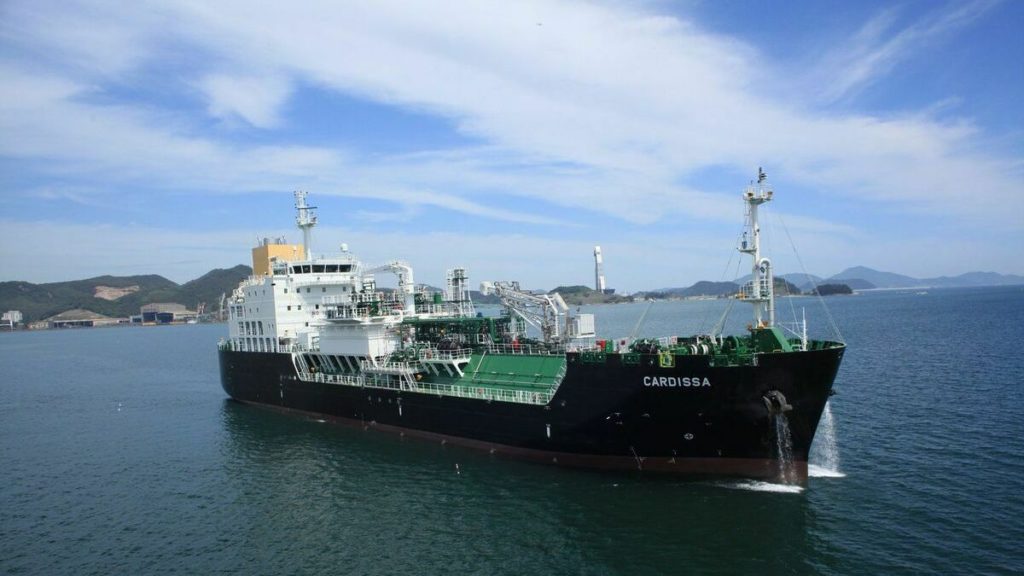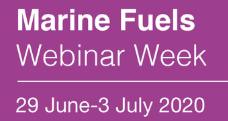The barriers to entry for LNG to gain ground in the marine fuels market are falling, as industry players told attendees at Riviera’s webinar on LNG as a marine fuel
Part of Riviera’s Marine Fuels Webinar Week, the webinar saw LNG advocacy group SEA\LNG’s chairman Peter Keller and industrial engineering services group Emerson’s business development manager for marine fuel solutions Daniel Kemp look at LNG’s environmental qualifications as a marine fuel and the progress of its market expansion.
Mr Kemp said the data his firm had compiled pointed to increased adoption of LNG as a marine fuel in spite of an ongoing slump in new orders for vessels due to the Covid-19 pandemic.
Among the "obvious drivers for people looking for alternative fuels," Mr Kemp cited IMO’s sulphur cap that came into force in 2020. He also noted a complimentary rise in international standards for LNG as a fuel, including those in Europe and Singapore, were aiding infrastructure development and uptake of the fuel.

"As a result of standards becoming more mainstream, more OEMs and more yards are starting to see the accessibility of not just bunkering systems but fuel gas supply systems increase, so the overall barriers to entry… are being reduced," he said. "It is easier and more cost-efficient to go with LNG as a solution."
Mr Kemp said vessel orderbooks for LNG vessels had increased nearly 10% in the year to January 2020 with a nearly 20% growth in overall tonnage ordered. This, combined with efficiencies of scale he called "tie ups between molecule supplier, bunker-barge supplier and then the consumer, the owner" had piqued broader interest in the way LNG marine fuel infrastructure would be developed and standardised.
The dynamics, he said, were working together to support infrastructure growth particularly around ship-to-ship bunkering and increased access to LNG fuel at ports and terminals.
"We are seeing small bunker barges doing truck-to-ship loading or even ship-to-truck loading, all the way up to larger vessels," Mr Kemp said. "Larger bunker barges are going ahead and being given green lights as we speak. And that is really filling those orderbooks. There are around about 19 [vessels] in operation now, with another 23 in the funnel."
"And a lot of ports, particularly in Europe, are making strategic investments to ensure they have LNG infrastructure to attract the right ships to their ports, to be a leader in that space," he said.
"There has been, with Covid-19, a downgrading of the overall newbuild forecasts globally across all fuel types. But we do see and we do believe LNG will take up a larger percentage of a smaller market and LNG itself will continue to grow as a fuel regardless of the downturn with regards to the Covid-19 situation and the drop in newbuilds."
For advoates of LNG as a marine fuel such as SEA\LNG’s Mr Keller, the time to shift to LNG as a bridging fuel in the drive to lower shipping’s carbon emissions is now.
"Clearly, there is an opportunity here using LNG where we can future-proof our fleets and take advantage of immediate greenhouse gas (GHG) reductions," “Is it perfect? No. Is it better than waiting for 10, 20, 30 years for what I call the magic elixir? Yes. Waiting is not always a good plan.”
Mr Keller said LNG has attributes that lower its environmental footprint as compared to other fossil fuels and it could aid the industry in reaching targets for GHG reduction laid out by IMO.
Regarding LNG’s air quality improvement credentials, he said "LNG provides all the benefits we need to improve world health". And with regard to IMO’s decarbonisation goals, he said LNG "offers significant reductions of greenhouse gases… and we also provide a pathway, through bio and synthetic LNG, to IMO 2050" which requires shipping to cut its emissions by at least half over 2008 levels.
“We can make a difference now… it is very clear…. there are significant savings today with regard to greenhouse gas reduction and air quality with the use of LNG,” he said.
“We know LNG is the only fuel that provides these benefits now. All the other fuels are years if not decades away.”

